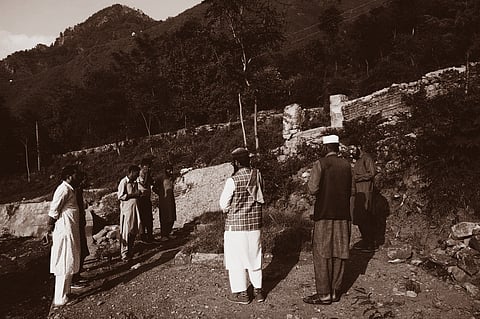

Dear reader,
The newscycle rests for none, and for those of us hawking over the shifting paces of the legal fraternity and India’s characteristic judiciary, the challenge is almost multiplicative. Something I have wondered about often, in recent times, is whether legal journalists been able to “reflect, hesitate and doubt” (as journalism professor Mike Ananny phrases it in his essay on ‘slow journalism’).
This week, conscious of this, we tried to pause and attempted to trace our steps back to four months ago - when the haunting spectre of a war was still in tact, for residents of Kashmir’s border Poonch district, the danger was much more tangible. Pakistan’s shelling killed thirteen people in this district alone. One such shelling bombed a madrasa, and while saving his young pupils, cleric Qari Iqbal lost his life. Unfortunately, it was the tragedy that followed that became a bigger news: three multi-thousand crore valued news channels, Zee News, News 18 and Republic TV falsely accused Qari of having been a terrorist. The unjustness of what happened to Qari was almost forgotten until journalists Sarthak Parashar and Ahmed Mir traced his family for The Leaflet and brought out this powerful story earlier this week on the Sisyphean legal battle his family has taken up to seek reparations. “Beyond the legal notices and compensation amounts, Qari’s family has found themselves in a battle that raises the most critical questions on the obliterated standards of mainstream journalism and ethics in India,” they write.
The Supreme Court, last Monday saw two notable developments - one, the much awaited interim decision of the Court on the Waqf (Amendment) Act delivered amidst what has been a complicated reaction. Our consultant Parmod Kumar’s report sums up the nuts and bolts of the order tightly but do keep a watch out for an exhaustive critique (perhaps even the most comprehensive so far, anywhere) of the order by academic Dr Nizamuddin Ahmad Siddiqui this upcoming week on The Leaflet.
Last Monday had also seen the Court’s pointed dismissal of a plea to include women political party workers under the ambit of the POSH law. That this was something the legislature must look into was probably enough for the Court to say, but by making discouraging observations such as the plea opening a ‘Pandora’s box’, the Court may have shut and sealed any possibility of judicial innovation. Researcher Ashna Siddiqui wrote: “Such dogwhistling by the Court may have provided more reasons to the political parties to never bring a bill concerning this matter, remain unaccountable & non-transparent”
POSH has been in the news for another reason. Ever since a Supreme Court bench passed a judgement noting that a sexual harassment case against the vice chancellor of Kolkata’s national law university, my alma mater, must “haunt the wrongdoer forever”, student agitation in the varsity has been peaking. Over the weekend, my phone buzzed with videos of students protesting for the VC’s removal. I understood much more deeply perhaps than many others, the depth of the issues haunting the institute. “It is an action born out of desperation, post the grave allegations of sexual harassment levelled against the VC,” he students wrote, “the glaring lack of financial transparency and the systemic patterns of administrative failures, persistent apathy, and growing disconnect between the administration and its students and faculty members.” Our report catches it all.
Coming back to where we started on the need to pause and reflect sometimes in the fast-paced news cycles we find ourselves in: for the past many months now, our team has been thinking about how satire is a powerful way to bring that reflectiveness. Our new column The Bitter Brief is a step in that direction - of documenting the life of the law in the most non serious way. AOR by the night, lawyer by the day, Abiha Zaidi’s wonderful writing will brief us every weekend, and her first piece, ‘Hurt and Sore’ gives a glimpse into her world, and all that is to come.
As we part, consider supporting The Leaflet and our growing ventures into more investigative and critical legal journalism, exclusive insights and cutting-edge legal opinions that aim to shape intellectual discourse on India's constitutional polity.
Warmly,
Sushovan Patnaik,
Associate Editor, The Leaflet
This newsletter is first broadcasted to our subscribers every weekend. Consider subscribing to The Leaflet.